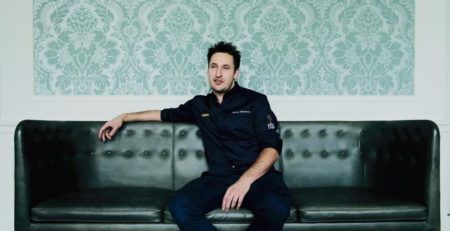Throughout his career, Paul Ivić has been a chef challenging norms and advocating for conscious eating practices. Through his culinary work, he tries to inspire others to use plant-based cuisine, showing the endless possibilities of vegetarian cuisine. Outside of the kitchen, Paul is a strong supporter of culinary education. He believes in the power of mentorship and collaboration, developing the talents of aspiring chefs and supporting a culture of innovation within his team.
The Best Chef: What are your thoughts on the location of your business and the level of competition you face?
Paul Ivić: If you go 200 meters to Carinthia Street, there are millions of people. But here, there is nothing, and I’m very happy with that. Because if you run a business over there, you don’t have to make very good products to make money. Here, you have to give your best so that people want to come. And I prefer this way more. It’s the same in the bistro. When we started in the bistro, they started without me. So in the first six months, they had just 10 guests per night. And now we have 150.
The Best Chef: Can you share the journey of how you became a chef and the significance of food in your life, including the influence of your upbringing and childhood experiences?
Paul Ivić: In the first place, one of the reasons why I became a chef was because I didn’t want to go to school anymore. So my parents told me, if you don’t go to school, what they prefer, I have to choose for work. And so I grew up in a touristic area. We have a lot of gastronomy, so it was okay. I think I became a chef because my sister told me, if you become a chef, you can go around the world, you can be creative, and also you can make money. And I thought, ah, I became independent. So this was great because I wanted to become a comic drawer. So this was my passion, my goal. And years, I think 15 or 20 years later, I realized why I became a chef. Because food was always important for me. When I remember when I was a kid, I was really frightened when I didn’t know who cooks the lunch. If my mother cooks lunch I was really calm because I knew the food will be great and also I striked in the school because the food was shit and I didn’t want to eat this food and I don’t want my parents to pay for this food because it was awful. It was almost just convenience food and not really good for good prepared so without any love or topics and I have to be become 32 to realize why I became a chef and so I remembered how I enjoy to stay with my grandparents because we had cows we had chickens we have a garden we have a wine yard it was really poor area They didn’t have money, but we had a rich, full area of plants, trees with almonds, with fruits. It was great. And this was my emotional island where I felt very happy and always calm.
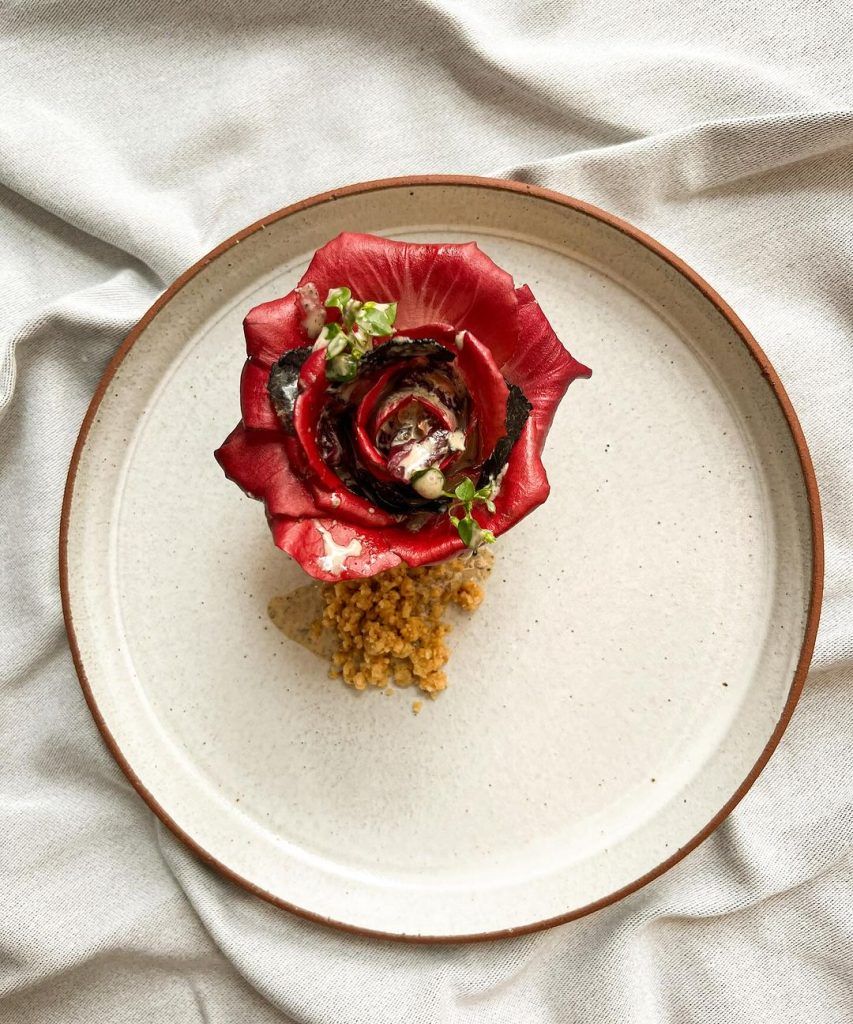
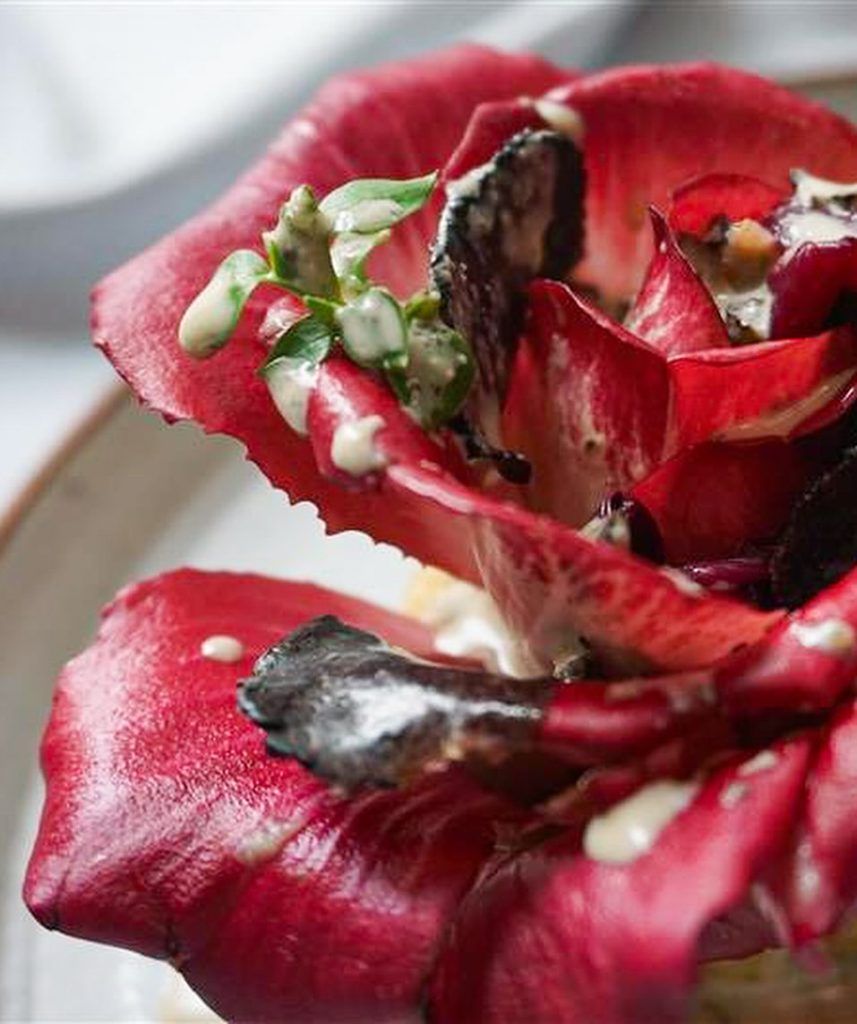
Photo: Instagram @tian_restaurant_wien
The Best Chef: Can you describe how your upbringing in the mountains of Tyrol and Croatia influenced your approach to food and your values as a chef?
Paul Ivić: Working as a chef, I always wanted to search for the taste, for the pure flavor. Because also where I grew up in the mountains, in Tyrol, it’s 1,300 meters. At this time, we didn’t have as much as hotels like now. We have a lot of grains, carrot fields, kohlrabi, and anything else. And as a kid, you go around, stick it, eat it, and this was really one of the best things I ever had. Yeah. And so, I figured out that I was really lucky because we had a great place in Croatia in the middle of nowhere and a great place in Tyrol also in the middle of nowhere. So my parents and also my grandparents had always focused on the quality of the food. And they didn’t have the money. And so, now we talk about no waste. It was normal to make no waste. So, this is how I grew up. But I have to become 32 to realize what impact they brought with me.
The Best Chef: How did your childhood experiences with food waste influence the creation of dishes like ‘back to the roots’?
Paul Ivić: Food waste is education and it’s a need. Because if you have no money and you want to spend on food, you don’t waste anything from good food. And so, one of the reasons why we create the dish, it’s called ‘back to the roots,’ is when I was a kid, the cow from my grandfather, the milk was very thick. It was very creamy. So if you drank one glass, you were full. And after four or five days, you let it outside. It wasn’t bad. It started to become sour. And the soup is a soup from poor people just with potatoes, this kind of milk, and some seeds of cumin. That’s all. And this is rich in flavor. But you have to research for really good milk. Because the industrial milk we have now tastes like nothing. It’s colored water. It lacks everything inside. And if you let it sit out for five days, it’s bad. You have to throw it away. So that’s not a product I want to work with. If you try this soup, I think it’s amazing and very emotional, and this is why I love being a chef.
The Best Chef: How did you decide to create vegetarian cuisine? And a more important question : why?
Paul Ivić: There was a time when I was both mentally and physically sick because I worked against my ethics. I didn’t care about my products, I didn’t care about my producers, I didn’t care about my customers, and I didn’t care about myself. I just was focused on maximizing profit. And so I started to become depressed. I was really good with money. And also the guests were satisfied with my food. But I was just buying a high quantity of low-quality ingredients. Tons of meat was contaminated with antibiotics and hormones. Also, thousands of kilos of salmon, which I think was floating more chemicals than water, and also fruits and vegetables that were grown in bad soil with herbicides and pesticides. And so I poisoned my guests, I poisoned myself. And when the doctor told me, ‘Paul, you have to change your life now, radical or you will in the best case land on my surgery table.’ So I decided, okay, what do I have to do? And I changed my life completely. And I used this time to think about what I want to do, and I started to ask myself, ‘What do I have to do as a chef? What impact does a focus on quality have on our environment? And what should be my goal?’ And it took a couple of months. Then the main owner, Christian Halper, searched for a chef for a vegetarian and vegan restaurant. And I thought, okay, this should I do because it was for me a need to go a new path. And when some of my colleagues called me, please, Paul, don’t do that because you never want to achieve your goals like a Michelin star or anything else, I thought, okay, this would be… the right place where I have to go. Because I need to do different things.
The Best Chef: What were the beginnings like? What was the public reaction to the vegetarian restaurant?
Paul Ivić: It took a long time. We struggled when we started. Nobody liked us. Nobody wanted us. Some people questioned why we should opt for vegetarian food. And I said, ‘Okay, try it. We’re not saying you can never eat schnitzel again. We’re just offering another opportunity.’ So when we started, we didn’t have the network of small suppliers that we have now. We didn’t have guests, so we lost a lot of money. I’m happy that it changed, but it took a really long time because no one wanted a place like us in Vienna. It’s the main city of meat.
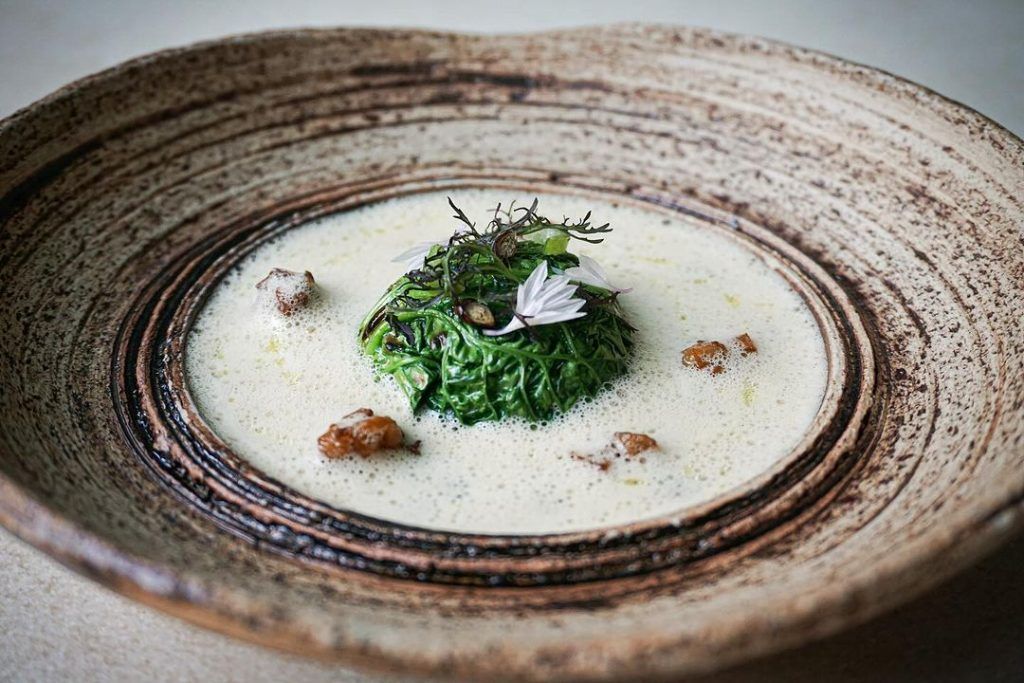
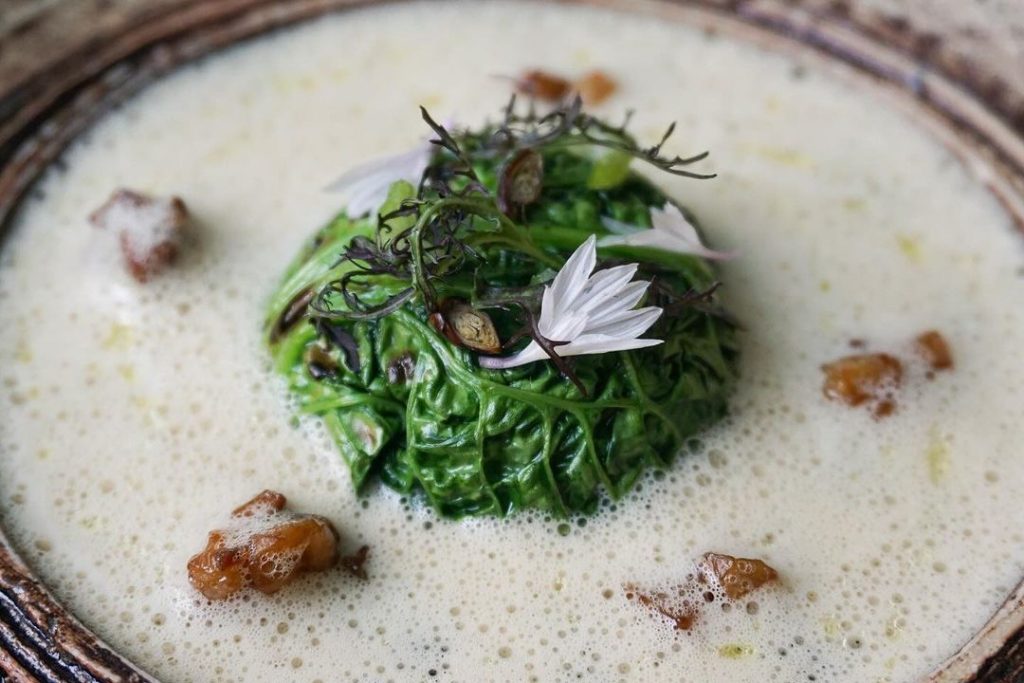
Photo: Instagram @tian_restaurant_wien
The Best Chef: Can you tell us about the demographics of your restaurant’s clientele?
Paul Ivić: 90% of our guests are flexitarians. So 4% are vegans, and the rest are vegetarians. It has always been one of my goals to have guests who enjoy good food and a welcoming atmosphere. I never wanted to cater exclusively to vegans or vegetarians. My aim was to welcome everyone. I desired to connect people with nature through the food we serve. So, this was my aspiration—not just to cook for a certain percentage of the population.
The Best Chef: Nowadays, meat consumption is also a debate. We have to ask this question – what do you think, meat or no meat?
Paul Ivić: It’s crucial to find the right balance because current meat consumption levels are excessively high. More than 90% of meat comes from mass animal farming, which poses significant health risks. It’s essential for individuals to understand that consuming meat from sick animals can impact their own health negatively. I firmly believe that by adopting a holistic view of food, we can make significant changes. Our eating habits influence not only our health but also our environment, social behavior, and economy. Therefore, it’s imperative to overhaul this flawed system.
The Best Chef: What does it mean to change the system? Is it about implementing one central decision to standardize the food system, or is it about returning to the past, to the farmers who allowed us to grow our own food?
Paul Ivić: In some things, we have to go back to the past. So what’s the basis of healthy food? It’s a healthy soil. It started with healthy soil. And as a soil, I do not just think about the soil we plant. As a chef, I have to be a soil for my team so it’s with education. And as chefs, we have to take more care about the focus on quality. Not just, “Is it Wagyu beef? Where does it come from? Is this sick? Is this healthy?” So if we focus on quality, it’s a mind-blowing change because it’s flavorful. It makes you happy. The guests are, “Wow, what happened?” And we need an education that the system, what we are now in, is going in a totally wrong direction, a destroying direction, and in the gastronomy so we are able to fix a part of that because what we are serving and what we are doing have an impact on a whole system. And so we have to encourage small suppliers to make things different and don’t make an agreement with the big concern. They want to manipulate gene seeds or just use herbicides and pesticides. Every day we can make a decision for a better planet. And it’s a tasteful planet. And so we have to support biodiversity, not just in the plants, but also in the animals. And we – as chefs or in the gastronomy we have a wonderful job to do and this is great and we should think about it often.
The Best Chef: There is currently a farmers’ protest in Europe. How do you see the role of farmers in caring for biodiversity and soil health, and how does your collaboration with them contribute to your culinary creativity?
Paul Ivić: We talk about climate change, and we have to talk about the soil—it starts with healthy soil. So, farmers also have to change their mindset because we need biodiversity. Our earth, our oceans need biodiversity to flourish. But we as people need it too. And we have to talk more about that. It’s really exciting to work closely with farmers because it’s also an education. It’s a discovery of new seeds, new plants, and you have to figure out, okay, how can we prepare this plant to make an amazing dish? And this is great. It’s fun every day because you have to think every day like it’s a new language, so it never starts to become boring.
The Best Chef: Many young people want to work with you, will you tell us your secret?
Paul Ivić: I do not know. You have to question my coworkers. We have a great team. They have wonderful characters and they have a good drive. So I have to strike by myself. And a lot of young people want to work with us. So they are interested in what we are doing. They are very interested in vegetarian and vegan food because they… I think they see for themselves that’s one part of a big future so they can make a career and they can make a difference for all the travels in the world. A small difference but if we spread it we make a big difference and it’s a joyful work.
The Best Chef: Compared to the past, today the chef as a figure is not just cooking, but is much more marketing, science. Which elements are so important to become a modern contemporary chef?
Paul Ivić: If your place does not run, you can make a difference. Other people have to see it works. So they are more brave to do other things. And I think one of the most important things is to encourage your people that they become better than yourself to work as a team because a restaurant will never be a one-man show if you don’t have good co-workers in the service so guests wouldn’t have that fun or to enjoy it so we don’t have to talk just about chefs. It’s the whole team, what you need to make a great job. And for sure, it’s very important to have awards, to have good marketing, that you have or could have a voice. Because if nobody knows you, if you don’t have a star or anything else, your voice is very little. And I think all the great chefs should use their voices to encourage young people or also other people to make a difference. And I think that’s great. And we can make the decision every day. Just what are we buying? And we have to take care about the stuff we are buying. And also to take care of our people who we are working with.
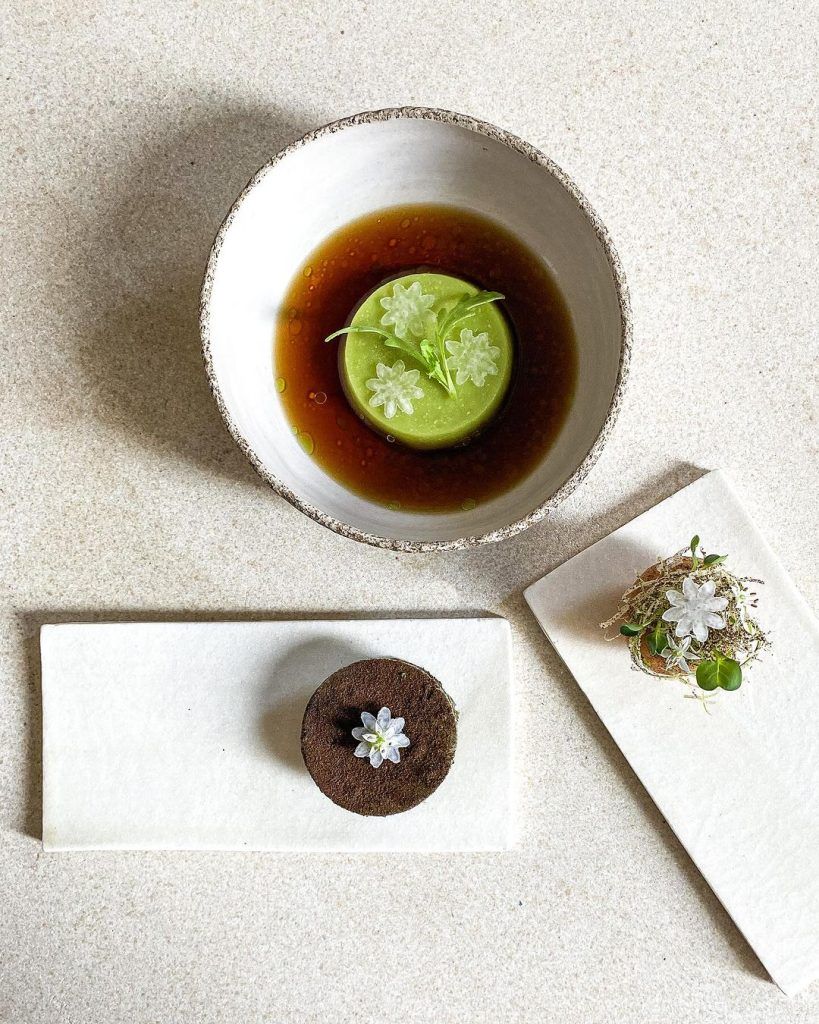
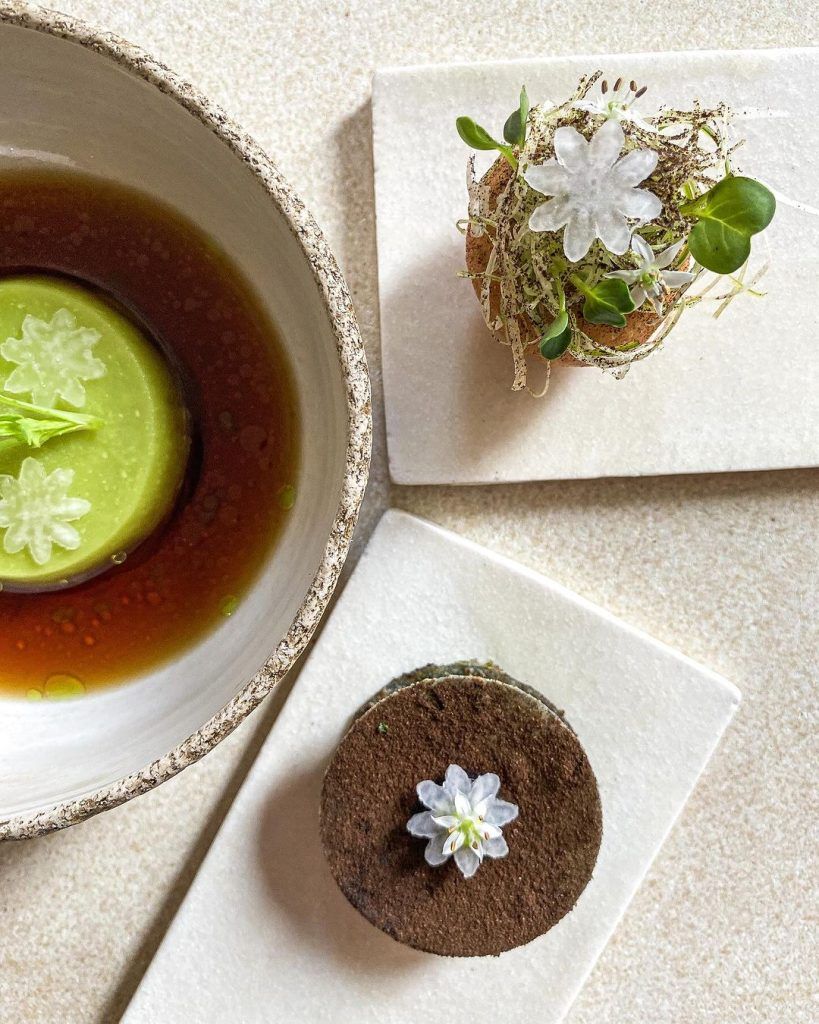
Photo: Instagram @tian_restaurant_wien
The Best Chef: How does collaboration within your team influence your culinary approach and creativity?
Paul Ivić: It’s always an exchange with Matze and the whole team because we have a lot of enthusiasts in the kitchen and also in the restaurant. Sometimes when they share things with me, I initially think, ‘What are you talking about?’ But it’s very important to have coworkers who work together and aren’t afraid to exchange ideas because one person’s knowledge can improve another’s. I believe it’s one of my goals, as well as Andre’s, to identify each coworker’s strengths and help them thrive in their roles. For instance, when Matze explains things with chemicals, it’s not always clear to me, but if he lets me try something, it sparks ideas in my mind. This exchange of knowledge contributes to the biodiversity within our team culture, where each person’s input is valued. I don’t want to work with soldiers who simply follow orders.
The Best Chef: Which is your next goal as chef, your dream?
Paul Ivić: One of my dreams is to run some restaurants where some of my people lead the restaurant and I can go there and have good food, good meal. But one of the most important goals for me is to convince people to do things in other ways. It’s really hard because it’s easier to buy a large amount of stuff from one producer because you can fix it with money and all, but I don’t like to waste my time discussing how it should cost. I want to spend my whole time researching for the best quality. So I hope that we can convince a lot of people to make it another way. Not like a lot of big companies who just watching about the food cost and the stuff cost and lower quality, lower quality. And also the desire is to convince people, hey, vegetables are not so bad, what you are thinking about.
The Best Chef: What is the idea of a food lab?
Paul Ivić: The idea behind the food lab is to minimize waste by finding innovative uses for leftover ingredients. For instance, we’re experimenting with creating a gluten-free bread that tastes exceptional. We’re also exploring the production of non-alcoholic juice, taking the next step in beverage innovation. Matze, who oversees the lab, often asks for guidance on what to do next, but I believe in maintaining an open-minded approach to foster creativity. We’re continuously brainstorming new ideas and conducting experiments to push the boundaries of what’s possible.
Our collaboration with local farmers is integral to our research. We work closely with them to explore new seed varieties, requesting specific crops and conducting our own research. After a year or two of cultivation, we’re introduced to entirely new plants, prompting us to develop unique dishes. This process serves as an educational journey, enriching our understanding of biodiversity.
Having access to a diverse range of ingredients is both exciting and challenging. For example, having 20 different varieties of celeriac means that each one has its own distinct flavor profile. Matze and head chef Flow work together to determine which dish best complements each type of celeriac. This ongoing experimentation serves as a reminder that our work is never complete; there’s always another step to take each day.
The Best Chef: Did your roots and the influence of Croatia somehow shape you as a chef?
Paul Ivić: You always develop yourself if you talk with other chefs or you are in other regions. So just for example when you go to make a pop-up in Croatia it would be very easy to bring all the stuff from Vienna to Croatia but we wanted to have knowledge about the region where we go to work and so you find new things you talk with the farmers with the chefs how they prepare it and so you get new techniques. The world of the gastronomic it’s about education in exchange. And also with the food lab when you ask what’s also my wish or goal, I wanted to make more conversations with other people, not just with chefs. So, how can we change something or why is it important to make everything organic and how can we support suppliers, how can they support us? It should be a network from a lot of people and not just from one. One has an idea and you are the messiah, or you are a part of a big system. I hope in five or six years we can make masterclass for other chefs or other companies so that they have an education with us, it’s like an academy. But this is a wish I do not know if we can make it happen. Because you need a lot of money.
The Best Chef: Do you want your children to continue your professional path?
Paul Ivić: If they want to, yes. It’s one of the best professions they could choose.
The Best Chef: You know, this is not a common opinion. It’s usually said that it’s hard work…
Paul Ivić: No. I don’t think it’s… My wish for my children is… that they find a work where they have a passion. Where it’s not, they did not talk about work. I don’t like the work balance. So why? It’s work – balance life integration. I am my work. And I love what I’m doing. Sometimes, yeah, I spend a lot of time, but it’s worth it. And this is what I wish for my children, that they don’t go for the stupid work they don’t like, because six hours, you stay six hours in work you don’t like. You lose six hours per day for your life. I sometimes spend 12 or 16 hours, but I like it. I love it. I love to talk about food. I love to talk about fruits. I love to talk about soil. It’s never boring. So sometimes my wife has to stop me. But I don’t think we should talk about work-life balance. You are the work and the work is also the life. And if you don’t have a job you like, your life is… Sometimes it feels like it’s my free time to spend it here because I work with people I love. I work with suppliers I like very much and I have a huge amount of quality ingredients. So yes, if my children want to become a chef, they should do it because each day you can discover new stuff. And you can go to Japan for new techniques. You can go to other parts of Asia, completely different food. You can go to Mexico or to the States. So it’s wow. And also for me, food is connecting people.
If you have a great meal, it doesn’t have to be in a Michelin star restaurant, you are happy. This is a good emotion. I want my children to always have good emotions. As a chef, you have a lot of opportunities. And yes, I know some people say it’s hard work, but if you want to achieve something, you have to do more than other people’s. It’s like a sport. If you want to become the best tennis player you have to spend a lot of time of your life in training but I think it’s worth it.
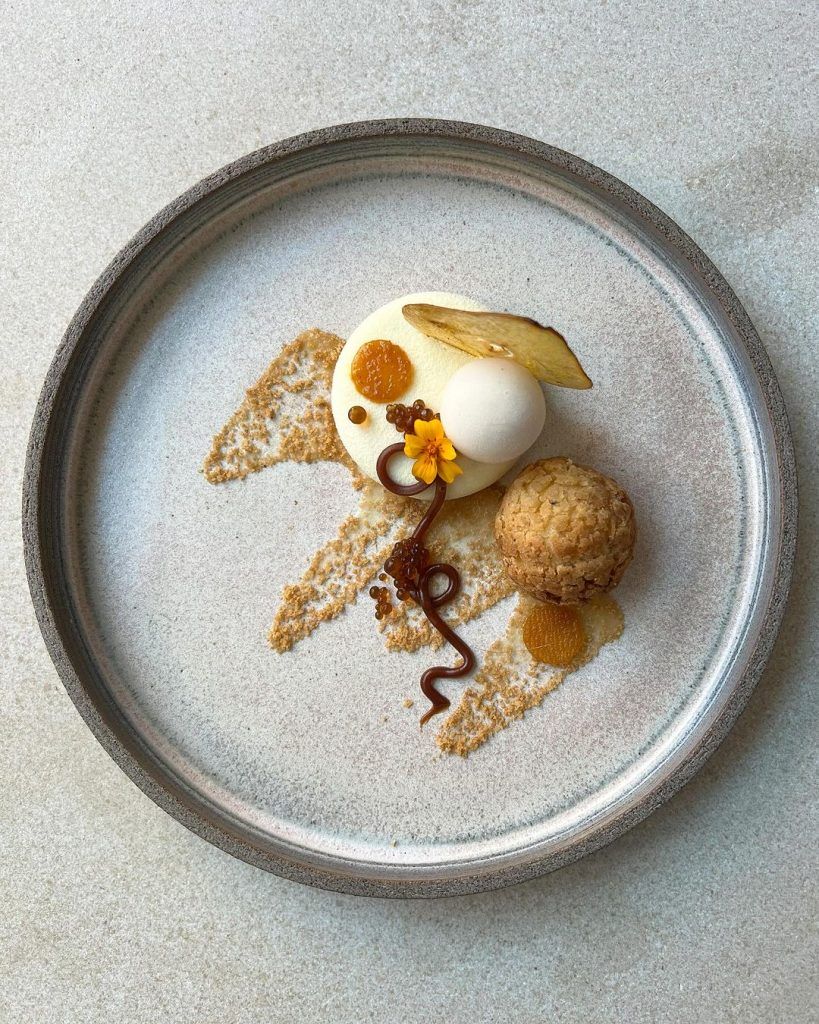
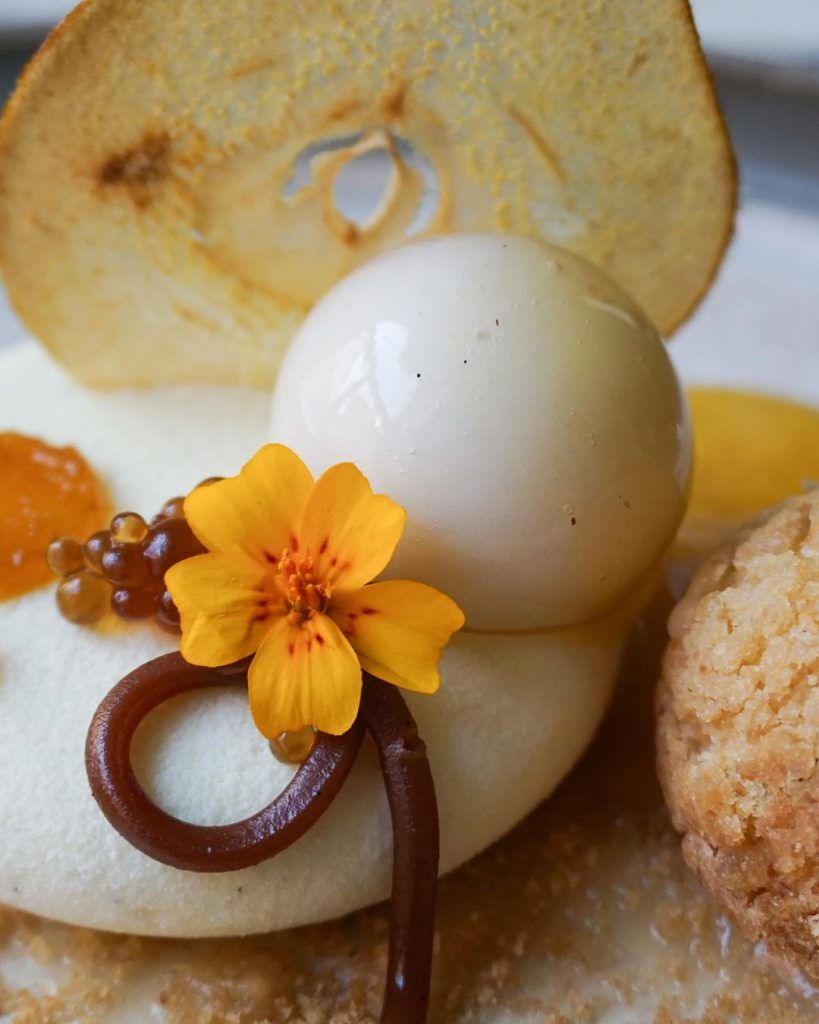
Photo: Instagram @tian_restaurant_wien
The Best Chef: And then it’s a matter of doing your work, your passion, not that you do something that is pure work for you just.
Paul Ivić: Yeah, and sometimes you have to spend a lot of time for it to become a passion. When I worked with people who showed me the possibilities, when I worked with chefs who showed me what real quality is, I started to become curious, and they convinced me about the importance of taste. And I thought, ‘okay.’ If you ask me, if I were to work one hour with convenience food, it would feel like the longest hour of my life. So, it’s always important to find out what you really want to do. And sometimes, it takes time. I had to be 32 years old to understand why I became a chef. I had to become sick to understand why I became a chef. Was it easy? No. Was it worth it? Yes.
The Best Chef: How do you prioritize creating a positive work environment in your kitchen, and what strategies do you employ to ensure your team feels valued and motivated?
Paul Ivić: When I started dating my wife, we spent a week together, and she talked with my coworkers, asking them, ‘Where do you like to eat on your holidays?’ To her surprise, all my coworkers made plans to visit the restaurant. She said, ‘Your coworkers are crazy.’ I replied, ‘No, they’re just in love with what we’re doing.’ As a chef, it’s crucial to create a positive atmosphere where people enjoy working. If you’re screaming all day or treating your staff poorly, nobody will want to be there. Co-workers should also take responsibility for the environment. I never enjoyed working in a restaurant where the chef was a psychopath or constantly yelled at the staff. It caused me a lot of stress and stomach issues. When I started here, I told my team that if they make a mistake, they should come to me so we can fix it together. But if they insult a coworker in front of the team, they won’t come to me. When I was younger, I admit I was tough to work with, but I’ve learned that leadership means staying calm under stress and pushing the team when needed. I’ve worked in hotels where people smiled to guests but yelled behind the scenes. It’s impossible for a coworker to smile genuinely in front of guests when they’re being yelled at. I prefer when my coworkers come in, genuinely smile, and go about their work because it comes from the heart.
The Best Chef: I remember one time you had to tell me about when you started to work. You were in this hotel, I don’t know where, without a window. Was it in Spain?
Paul Ivić: They called me the El Loco because I would go in every day at 7 a.m. and leave the hotel at 12 p.m. They only worked eight hours. It took me three months to see the ocean. My apartment was here, and the ocean was there. I was loco. I didn’t enjoy life, so I don’t think I was a joyful person. Once even, I worked with a sociopath and psychopath…
The Best Chef: How do you approach leading and motivating your team in the kitchen?
Paul Ivić: Yeah, everybody explains to you that you have to lead your team from the heart to be a great leader. And if you don’t motivate them every day, they won’t improve. I don’t think so. If they don’t enjoy working in your environment, they’ll never strive to improve. I’ve changed the way I lead, and I hope my team appreciates this approach, but I don’t believe in shouting or insults. If you feel the need to insult your team, either change your approach or change the team itself. Because each co-worker talked with me in the first place and and I select who I want to work with me. Some co-workers need a long time to start to become what he can be, somewhere faster. But you are the driver and you should just be the road and you have to go. And some people don’t fit with you. So I do not fit with each people.
The Best Chef: Yeah, that’s true. Because if you have to force them, if it feels like an obligation to make them comply, then it’s probably not something they genuinely enjoy or feel passionate about.
Paul Ivić: And there was a time when I took pride in us being like soldiers, but we’re not Navy SEALs. So we don’t fight for life or death. I’m not a surgeon to make one wrong cut and the person is dead. If I do something wrong, maybe the guests have to wait five minutes. What’s five minutes? If you’re engaged in a good conversation, you’ll enjoy those five minutes, and you’ll stay longer. Additionally, you have to try it. When you’re under pressure and you start screaming at your chefs and servers, they all become nervous and make more mistakes because of it. If you’re the captain of a boat in high waves, you have to remain calm to reassure your team that ‘we want to survive,’ just as you would instruct them to ‘make wind’ if the ocean were too calm.

